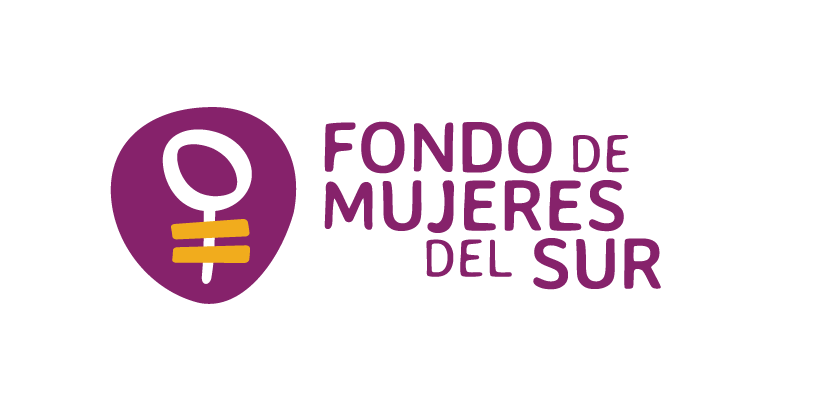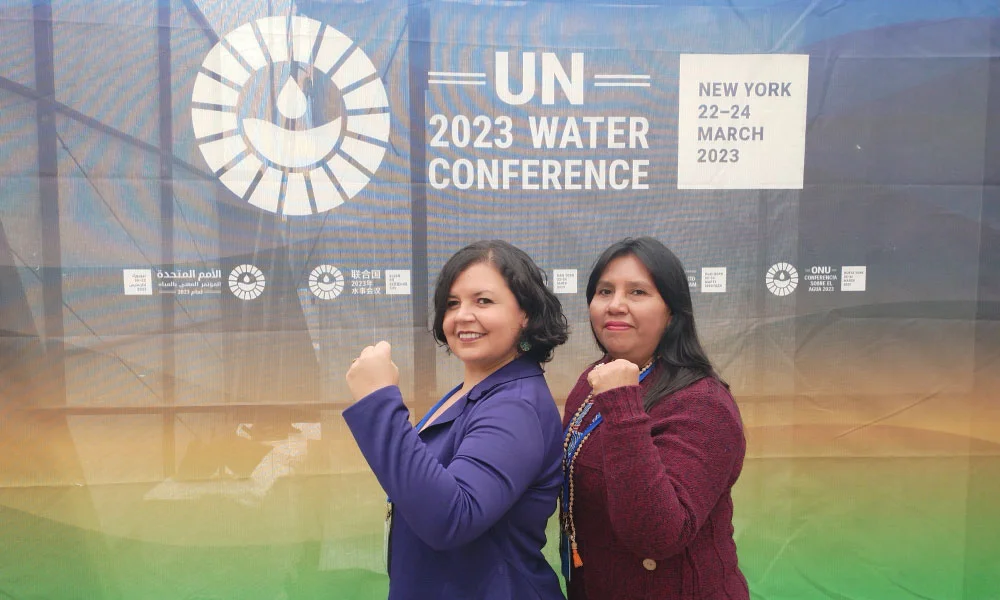From March 22 to 24, the United Nations Water Conference was held in New York (United States). Almost 50 years after the first conference, representatives of the States and civil society met again with a central focus: how to generate actions to care for water in the face of an unprecedented climate crisis. Bernarda Pesoa, environmental defender from the Paraguayan Chaco, and Raquel Aveiro, Fondo de Mujeres del Sur Paraguay National Coordinator, were there.
In March 1977, in the city of Mar del Plata (Argentina), the United Nations (UN) met to discuss water. As a result of that meeting, water began to be considered a human right. That was the first and last time that the United Nations Water Conference was held until today, almost forty years later.
In this edition, held between March 22 and 24 in New York, the objective was for States to make commitments to guarantee access to drinking water and sanitation for the entire population, within the framework of a climate crisis on a global and unprecedented scale.
Bernarda Pesoa, activist and environmental defender from the Paraguayan Chaco, and Raquel Aveiro, National Coordinator of Fondo de Mujeres del Sur in Paraguay, together with organisations and activists that are part of the Global Alliance for Green and Gender Action (GAGGA), travelled to participate in the Conference activities.
With a busy agenda, Bernarda and Raquel shared with community leaders from the environmental struggle, representatives of different States and from the international cooperation, and they managed to get their messages on the agendas and in debates.
TOWARDS CLIMATE SOLUTIONS WITH GENDER EQUITY
On March 23, they participated in the side event Making finance for gender just water and climate solutions a reality!, organised by the GAGGA Alliance. Activists from Nepal and Nigeria, together with Bernarda representing Paraguay, were there as part of the We, Women Are Water (*) campaign.
Fossil fuel extraction in the Niger Delta, eucalyptus monocultures in the Paraguayan Chaco, and the hydroelectric project on the Seti River in Nepal were presented as cases that endanger life in the territories. The activists emphasised the need to focus on the safety of women environmental defenders and strengthen their initiatives and strategies for community water management as a real solution to the issues that affect them.
Representatives of the Green Climate Fund also participated in the event; Pilar Andrea Barria Sandoval, Advisor for Water at the Ministry of Environment of Chile, and Omer Van Renterghem, Theme Expert on Land, Water and Ecosystems in the Inclusive Green Growth Department at the Ministry of Foreign Affairs of The Netherlands.
At the Conference, proposals were made that are already being implemented by indigenous, peasant and grassroots women in their daily lives. We hope that these initiatives will be reflected in the new Water Action Agenda, and that the focus will be on the care of common goods as a way to deal with the climate crisis with transformative solutions.
In the video that follows, Bernarda and Raquel talk to activists and share about their experience at the Conference.
(*) We Women Are Water is a communication campaign for advocacy and awareness around territorial climate solutions with a community and gender perspective. It has been run for the last six years by funds and organisations that are part of the GAGGA alliance. It is run within the framework of International Water Day. You can watch the videos made in 2023 here: https://gaggaalliance.org/we-woman-are-water-2023-en/

